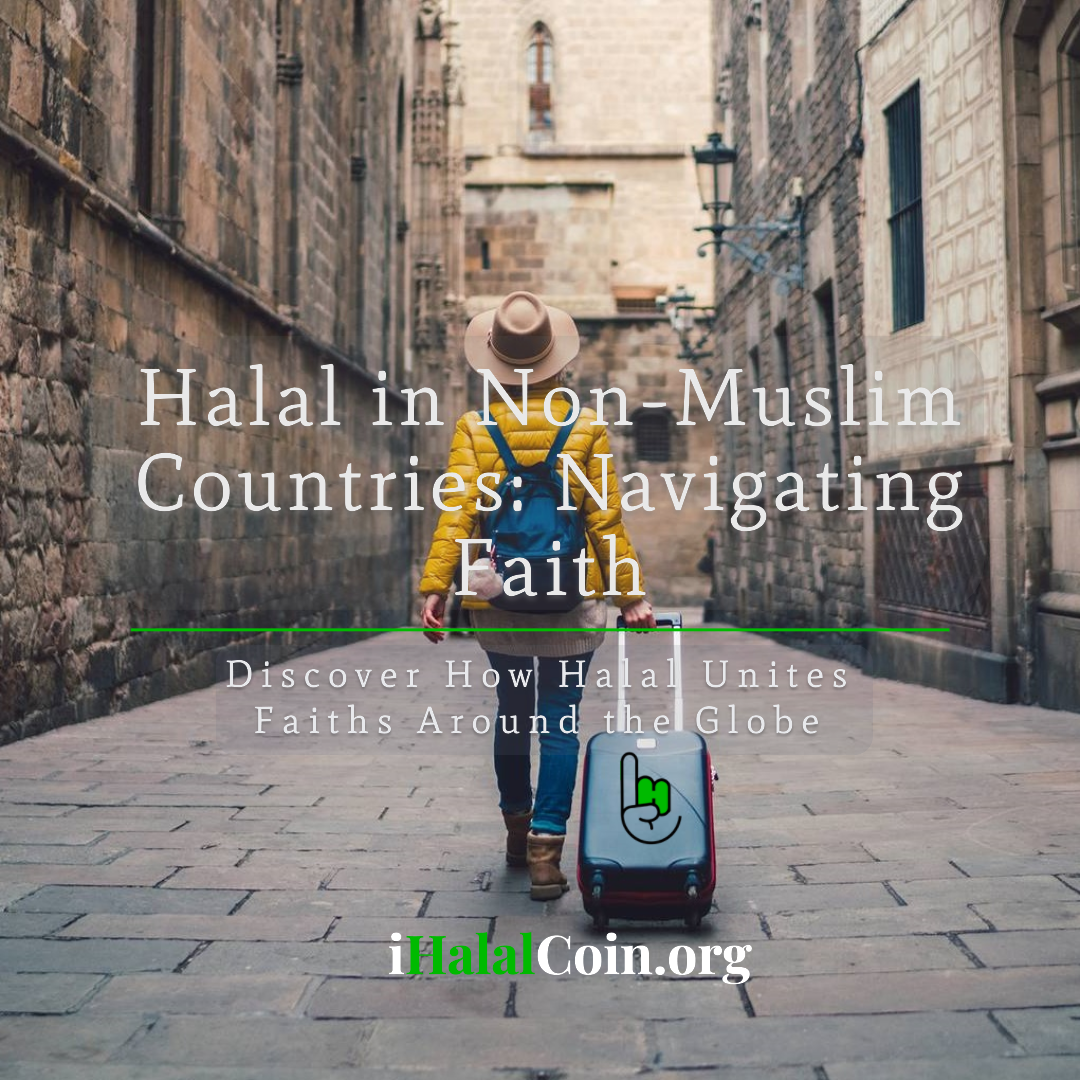In today’s globalized world, the concept of Halal, an Arabic term meaning “permissible,” has become a universal language that transcends the borders of Muslim-majority countries1. It’s a lifestyle choice for Muslims worldwide, even in places where they’re a minority. But how does one maintain this Halal lifestyle in a non-Muslim country? This article aims to explore this question in depth.
Understanding Halal
Halal is more than just a dietary restriction; it’s a comprehensive lifestyle that governs a wide array of aspects, from food and clothing to financial transactions1. For a practicing Muslim, adhering to Halal principles is not just a matter of choice, but a significant aspect of their faith. However, when you’re living in a non-Muslim country, maintaining these practices can present a unique set of challenges1.
For instance, finding a Halal restaurant or a Halal butcher in Muslim-majority cities like Jakarta or Riyadh is a simple task. But if you’re in Tokyo or Buenos Aires, it might feel like you’re searching for a needle in a haystack1. The availability and accessibility of Halal options in non-Muslim countries can be limited, but with the right resources and determination, it’s not an impossible task1.
Navigating Faith in a Diverse World
In the age of technology, Muslims have found innovative ways to locate Halal options in non-Muslim countries23. From Halal restaurant finder apps to online Islamic clothing stores, the digital world is bridging the gap. For example, platforms like Zabihah2 and HalalTrip provide comprehensive databases of Halal restaurants worldwide, while apps like Muslim Pro3 and Islamic Finder help locate prayer facilities.
Community and networking also play a crucial role in navigating Halal practices in a non-Muslim country. Connecting with local Muslim communities can open doors to numerous Halal opportunities, from discovering local Halal grocery stores to finding mosques and prayer facilities1.

Impact of Halal in Non-Muslim Countries
The Halal market is not just a niche; it’s a booming global industry. From Halal tourism to Islamic banking, non-Muslim countries are recognizing the economic potential of this market1. For instance, the American food culture has seen an acculturation of Halal food through immigration and globalization1. This not only caters to the Muslim population but also promotes diversity and inclusivity1.
Case Studies
Japan, a non-Muslim country, provides an interesting case study. Despite its majority non-Muslim population, Japan has seen a rise in the Halal food industry1. This is largely due to the increasing number of Muslim tourists and the growing awareness of Halal food’s health benefits1. Similarly, in the UK, Islamic banking has gained popularity, providing financial services that comply with Islamic law1.
In Egypt, a country with a significant Muslim population but also a diverse range of religious beliefs, the trials of Egyptian leaders and the challenges of establishing democracy, freedom, human rights, and the rule of law have been a significant part of the country’s recent history4. The trials have been seen as Egypt’s most significant step yet toward establishing the principle that “no leader is above the law.” This has had significant psychological and sociological effects on the Egyptian people and Arabs throughout the region, and sends a clear message that the rule of man has ended and the rule of law has returned4.

Conclusion
Navigating Halal in a non-Muslim country is like embarking on a journey through uncharted waters. It’s a journey filled with both challenges and triumphs1. But at the end of the day, it’s about staying true to your faith while respecting the diversity of the world we live in1. After all, being a global citizen is all about understanding and respecting the cultural and religious diversity that makes our world so beautifully diverse.
References
- Halawa, A. (n.d.). Acculturation of Halal Food to the American Food Culture through Immigration and Globalization.
- Zabihah. Your guide to Halal eating.
- Muslim Pro. Accurate Prayer Times, Azan (Adhan) And Qibla Direction Worlwide.
- Arafa, M. The Unexpected Trials Of Egyptian Leaders: Is It a Question of Law or Politics?

